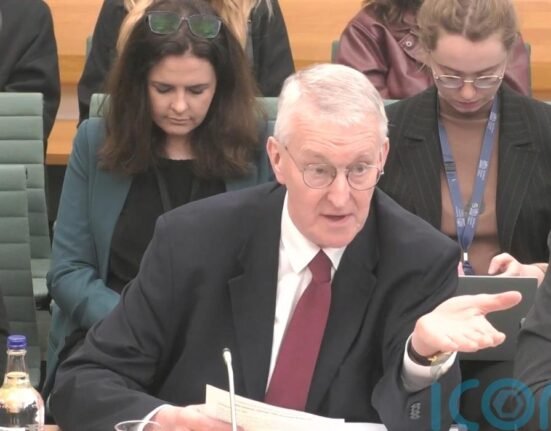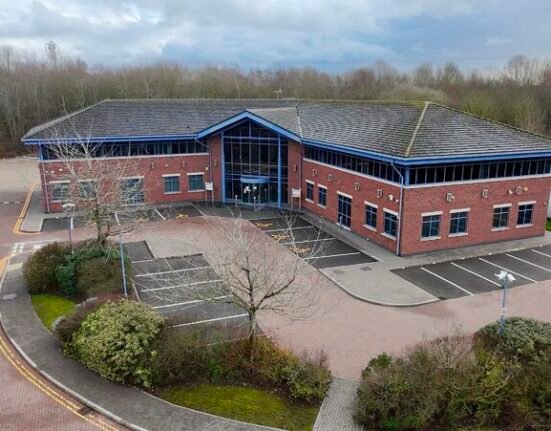
A multi-family office founded a couple of years ago, and already making a name for itself, talks to this news service about the “fear of missing out,” proving genuine value, saying “no” to clients, and guiding them through volatile markets.
In the investing world there are thousands of products, ideas
which outnumber these products, and too much market noise. To top
it all off, there are numerous advisors who want to peddle a
product or idea, not because they are the best options, but
because they yield the highest commissions.
This is the trenchant opinion of Manish Tibrewal, the co-founder
of Singapore-based Farro Capital, the
multi-family office and example of the kind of independent outfit
competing against banks and other business models in Asia and
elsewhere. (In December 2023, one of its businesses, Farro
Ventures,
opened in Dubai.)
Tibrewal says one big problem in the wealth – and wider financial
sector – today is “FOMO” – fear of missing out. With stocks such
as chipmaker Nvidia in the stratosphere and the air abuzz over AI
and other developments, this giddy atmosphere requires composure.
“If we consider history a good teacher, the biggest lesson
learned would be that not most, but all the fads have eventually
faded. There is a big distinction between a generational trend
and a fad,” he said.
“Fads could last for the short term, but the markets always
revert to the fundamental reality in the long term. It is always
a twenty-twenty hindsight when we retrospect, but it is a tough
call to separate a fad from a long-term trend on some occasions.
For example, the internet bubble was a fad at the time, but
it became a generational trend in the long term.”
“The investors who could hold their nerves and invested in the
winners reaped rich dividends. Compare that with the recent zero
rate environment where companies without any path to
profitability were trading at berserk valuations. The moment the
interest rate environment changed; all these companies became
close to worthless,” Tibrewal continued.
Tibrewal said another point that the industry can too easily
forget is one of the oldest insights of all: compounding.
“Every dollar saved is a dollar earned, says the adage.
Similarly, in the investing world, every dollar that is not lost
to avoidable risks is equivalent to a dollar return enhanced on
investment. Picture this: if you lose 50 per cent of the value of
your investment, you need to make a 100 per cent gain just to
come back to your original amount. Hence, if one must compound
for the long term, they cannot afford to have big dips in their
portfolio value as that erodes the gains made over the years
significantly,” he said.
Explaining some of these points to wealthy clients whose heads
might be turned by the kind of fads, or even more credible ideas,
that Tibrewal talks about, is not always easy, particularly when
HNW and ultra-HNW clients have built fortunes through taking
great risk.
“We have the courage to have deep conversations with the families
including some uncomfortable issues around their family dynamics,
family net worth vs liquid net worth, gaps in their investment
philosophy and the profound realisation that it is not necessary
[the case] that every successful entrepreneur will be a
successful investor,” he said. “On the contrary, many
entrepreneurs get blindsided when it comes to investing because
they are naturally configured to take risk. Hence, they will
usually perform well in bull markets but get burnt badly at times
of volatility,” he said.
This news service has got to know Tibrewal and colleagues over
recent years. Farro, which was established in 2022, is licensed
by the Monetary Authority of Singapore. Farro took its name from
an ancient grain that dates back many millennia and still thrives
today. Tibrewal was previously CEO at Maitri, the fund manager
and multi-family office in Singapore. He has more than 19 years
of experience working in various leadership roles across India,
Africa, and Singapore at the multi-billion-dollar Tolaram group.
Value proposition
WBA asked why wealth managers might struggle to explain their
value proposition.
“The landscape has changed drastically in the past 20 years.
Owning a bearer share company or a numbered account without any
KYC has become a thing of the past. The margins in the business
used to be high as the brokerage was not transparent and there
were no cheap technology-led competitors in the market,” he
said. “Many of these banks and wealth management firms are still
stuck in the past thinking that the old model is what the clients
want and continue to make cosmetic changes to their offering,
without addressing the fundamental issue.”
Tibrewal argued that many firms continue to have inherent
conflicts of interest by charging commissions, encouraging them
to churn portfolios.
“They [firms] are also constrained by the internal platform
capabilities. There would be many products and investment theses
that may be superior to their own offering, but they are unable
to offer a best-in-class solution to the client,” he said.
Farro brings “best-in-class” solutions to clients because it is
agnostic about products and platforms, Tibrewal continued.
An issue is that most wealth managers and banks often focus only
on the liquid financial net worth of a client’s wealth, he
continued.
“Though they are aware that a family is in the `billionaire’
league, they use it for marketing laurels, and don’t pay enough
attention to the ways to add value to their businesses,” he
responded.
Tibrewal gave a concrete case of how Farro works.
“While we were reviewing the portfolio of a newly-onboarded
client, we saw that he had a disproportionately large exposure to
a particular stock. When we enquired about it, he said that he
was surprised to hear that. The reason was that he owned direct
equity with one custodian, a long derivative with another
custodian, another long derivative on the same stock with a third
custodian, and a fund where the top holding was the same stock,”
Tibrewal said. “The total exposure to the stock was five times
the exposure that the client thought was in the portfolio. The
reason was simple – all the custodians just knew the level
of exposure with them, and the client had never consolidated his
portfolio to see the performance and exposure in totality,” he
said.
Farro uses technologies to get a whole view of a portfolio and
provide a client with a whole view of their holdings, including
business assets, real estate, wine, art, or any other alternative
assets.
WBA asked Tibrewal about what happens when some clients
sack advisors and hire new ones.
“The biggest issue in our industry is that of `overpromise and
underdeliver’, and mis-selling due to conflicts and vested
interests. Clients may feel dissatisfied when their advisor”s
recommendations seem to prioritise the firm’s benefits over their
own financial goals, such as pushing proprietary products with
higher commissions, and such products are pushed as ‘high
conviction’ ideas,” he said.
“This erodes trust and prompts clients to seek advisors who
genuinely prioritise their best interests. Inadequate
customisation is another major concern. Clients with unique
financial needs and goals may feel underserved when advisors
provide generic solutions rather than tailored advice.
“For example, a family with complex estate planning needs might
switch to a firm that offers specialised expertise and
personalised strategies. Additionally, lack of communication is a
significant issue; clients expect regular updates and proactive
communication from their advisors. When advisors are unresponsive
or fail to keep clients informed about their portfolio’s
performance and market conditions, it creates frustration and a
sense of neglect,” he said.
Finally, WBA asked Tibrewal him about the need for advisors to
sometimes say “no” to a client and frame their expectations
realistically.
“Since we consider ourselves an extension of our clients, we
don’t hesitate to speak our minds. Our clients engage and trust
us because we always keep their best interests at heart. It is
our primary responsibility to ensure that if we believe a certain
decision or strategy is not suited to the client’s needs and
could have an adverse impact, we engage in a mature conversation
to explain our concerns,” he replied. “Fortunately, we have built
a high level of trust with our clients, and they take our counsel
very seriously. Often, these discussions revolve around asset
allocation.”
Avoiding mistakes
“For example, one of our clients recently exited his technology
business, which he had built from the ground up. Having no
interest in traditional assets, he wanted to deploy all his cash
into high-growth ventures. Coming from a humble background and
being a technology savant, he had very little interest in
conventional financial investments,” Tibrewal said. “During our
multiple conversations, he mentioned that other advisors were
eager to allocate his entire capital into high-growth ventures as
per his preference. He questioned why we insisted on creating a
nest egg, especially since he is young and has plenty of time to
recover any potential losses from high-growth investments,” he
continued.
“We had a profound discussion where we pointed out that his plan
didn’t account for the possibility of him not being around in the
future. In that unfortunate scenario, would his family be able to
maintain the same lifestyle if all assets were tied up in
illiquid high-growth ventures? This perspective changed the
entire conversation. He is now content, knowing that he has
provided an insurance for his family by allocating a portion of
his wealth into safe and less volatile assets,” Tibrewal added.






